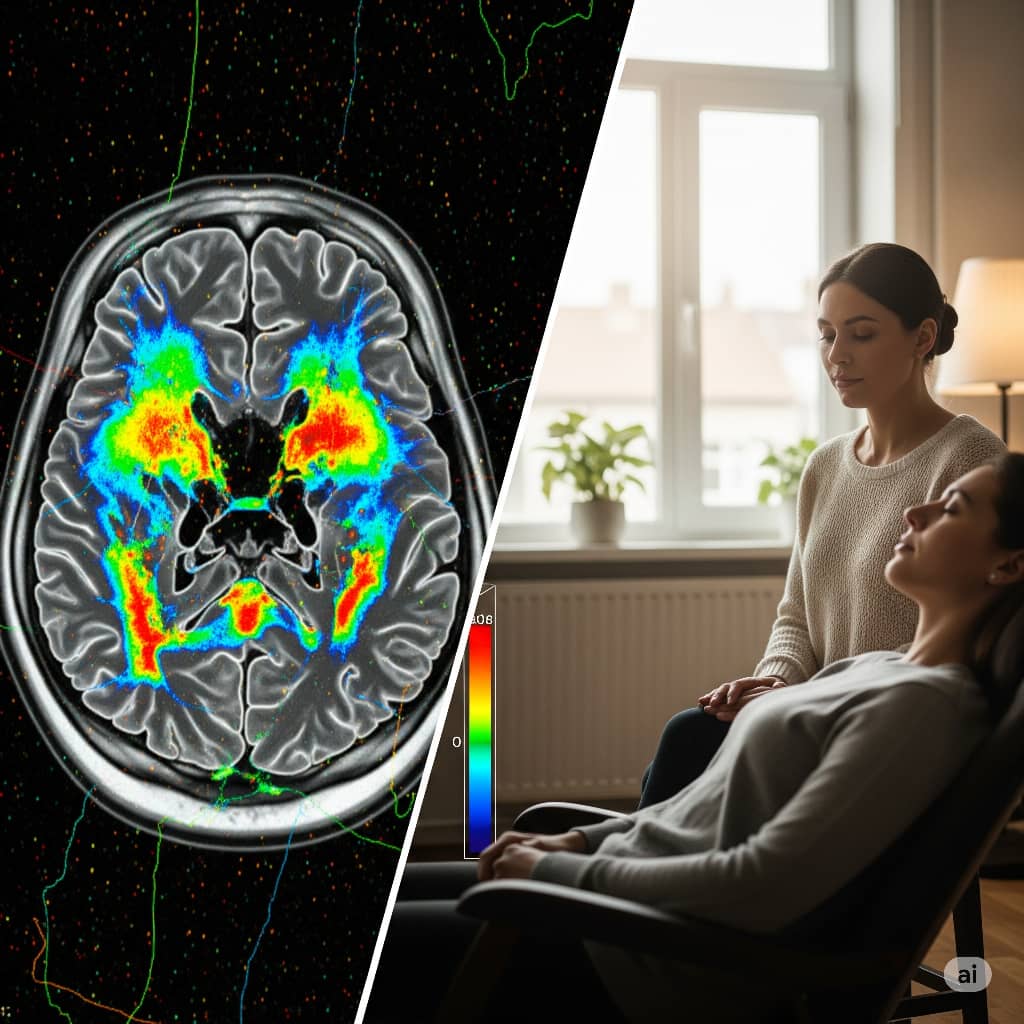Explore how hypnotherapy can help manage anxiety, break bad habits, and improve mental health. Learn what to expect from clinical hypnosis and how it complements traditional therapy. Sarah had struggled with insomnia for years, cycling through sleeping pills and relaxation apps with little success. Then her therapist suggested hypnotherapy. Skeptical but desperate, she agreed. “It felt like guided daydreaming,” she recalls. “But that night, for the first time in memory, I fell asleep without racing thoughts.” Three sessions later, her sleep patterns had fundamentally shifted.
This is the promise of clinical hypnotherapy not the stage performances of swinging pocket watches, but an evidence-based tool that helps people access their subconscious to create meaningful change. Increasingly recognized by mental health professionals, hypnosis offers a unique pathway to address issues where traditional talk therapy sometimes falls short.
What Hypnotherapy Really Is And Isn’t
Contrary to popular myths, hypnotherapy doesn’t involve mind control or unconscious vulnerability. It’s a collaborative process where a trained therapist guides clients into a focused state of attention, often called a trance. In this state, similar to getting absorbed in a book or highway driving, the mind becomes more open to therapeutic suggestions while maintaining full awareness and control.
Clinical hypnosis works by bypassing the critical conscious mind to communicate directly with the subconscious, where many automatic behaviors and emotional patterns reside. This makes it particularly effective for issues rooted in habitual responses, like anxiety reactions or addictive behaviors. The American Psychological Association recognizes hypnotherapy as a valid adjunct treatment when practiced by qualified professionals.
Proven Applications in Mental Health
Research demonstrates hypnotherapy’s effectiveness for multiple psychological concerns. For anxiety disorders, it helps clients reframe automatic fear responses at their source. A 2022 study in the *International Journal of Clinical and Experimental Hypnosis* showed hypnosis reduced panic attack frequency by 68% when combined with cognitive behavioral therapy.
The approach also shows promise for trauma processing. Unlike traditional exposure therapies that can retraumatize, hypnotic techniques allow patients to revisit painful memories with emotional distance, often using metaphor or visualization. This gentle reprocessing helps diffuse traumatic memories’ intensity.
Habit modification represents another area where hypnotherapy excels. Whether addressing smoking cessation, nail-biting, or other compulsive behaviors, hypnosis helps rewrite the subconscious scripts driving these actions. The British Psychological Society notes hypnotherapy doubles quit rates for smokers compared to willpower alone.
What a Typical Session Involves
A first hypnotherapy appointment begins with thorough discussion of the client’s goals and history. The therapist explains the process, dispels myths, and establishes trust essential since hypnosis requires voluntary participation. Subsequent sessions start with relaxation induction, often through guided imagery or progressive muscle relaxation.
Once in a trance state (which feels like deep focus), the therapist offers tailored suggestions aligned with treatment goals. For weight management, this might involve enhancing motivation for healthy choices. For public speaking anxiety, it could involve anchoring calm feelings to presentation scenarios. Sessions typically last 50-60 minutes, with clients remembering everything unless using hypnosis for memory work.
Integrating Hypnotherapy With Other Treatments
Most practitioners position hypnotherapy as complementary rather than standalone treatment. Psychiatrists might combine it with medication for pain management. Psychologists often blend it with CBT to reinforce cognitive restructuring. Even in hospital settings, anesthesiologists increasingly use hypnotic techniques to reduce surgical anxiety and pain medication needs.
The approach shows particular synergy with mindfulness practices. Both cultivate present-moment awareness, but hypnosis adds targeted suggestion to shape subconscious patterns. Many clients find hypnotherapy accelerates progress when they’ve plateaued with traditional therapy alone.
Finding Qualified Practitioners

Seek therapists certified by reputable organizations like the American Society of Clinical Hypnosis or the British Society of Clinical Hypnosis. Medical hypnosis requires additional training—look for licensed psychologists, psychiatrists, or clinical social workers with hypnosis certification. Beware practitioners making grandiose claims; ethical hypnotherapists discuss realistic expectations and never guarantee specific results.
Hypnotherapy offers a fascinating bridge between science and psychotherapy, leveraging the brain’s neuroplasticity to facilitate change. While not a magic cure, it provides a valuable tool for issues where conscious effort meets subconscious resistance. As research continues to validate its benefits, this ancient practice is finding new relevance in modern mental healthcare, helping people rewrite their inner narratives one trance state at a time.
References
Holistic Mental Health Clinic. (n.d.). Embracing change: How hypnotherapy can help seniors cope with life transitions. https://www.holisticmentalhealthclinic.com/embracing-change-how-hypnotherapy-can-help-seniors-cope-with-life-transitions/
Martin, D. (2023, September 13). How can hypnotherapy help older adults find relief from stress and anxiety? AIHCP. https://aihcp.net/2023/09/13/how-can-hypnotherapy-help-older-adults-find-relief-from-stress-and-anxiety/
WebMD. (n.d.). Mental health and hypnosis. https://www.webmd.com/mental-health/mental-health-hypnotherapy
Aging Assistant. (2023, August 15). Companion care at home – Understanding the benefits of hypnotherapy for seniors. https://www.agingassistant.com/companion-care-at-home-understanding-the-benefits-of-hypnotherapy-for-seniors/
CSA Blog. (2024, August 3). Zoning in on hypnotherapy for seniors. http://blog.csa.us/2024/08/Coffee-Break.html

